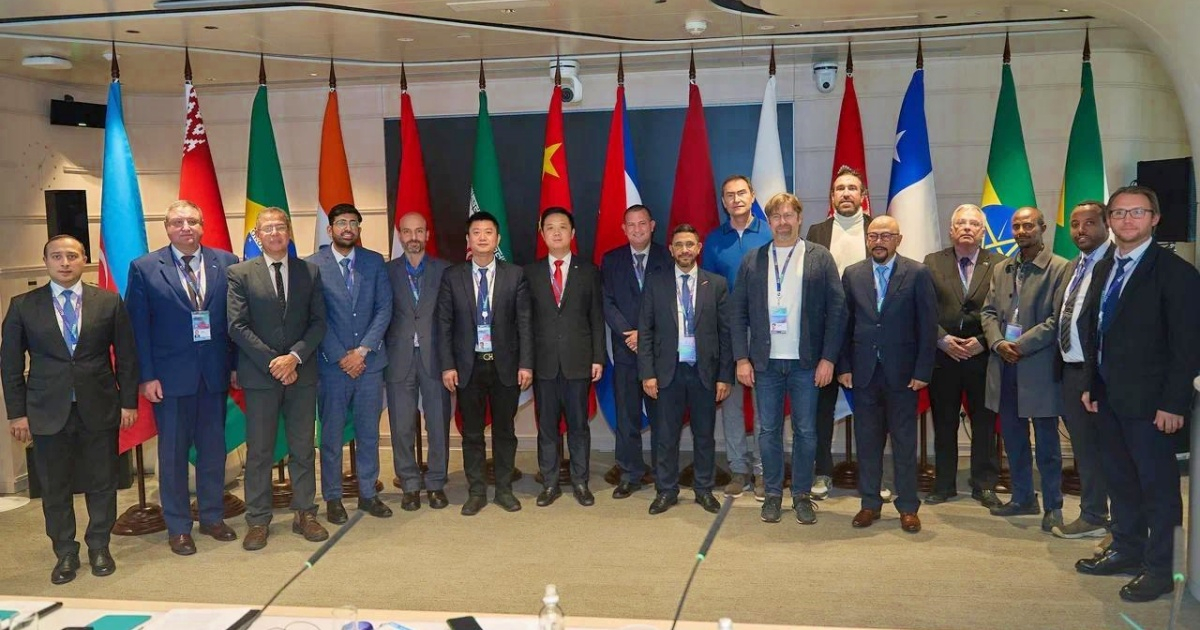
Related videos:
The Cuban government has taken a step towards Artificial Intelligence following the announcement that two technological entities from the country have joined the AI Alliance Network, a network of Artificial Intelligence alliances among the BRICS nations, an organization that the island became a partner of in October.
The representatives of Cuba in the AI Alliance Network are the Ecosystem of the Scientific and Technological Park of Havana and the University of Computer Sciences (UCI), as confirmed by official sources.
The BRICS Artificial Intelligence Alliance Network brings together 13 countries and 15 organizations focused on development in this groundbreaking technological field.
Rafael Torralbas Ezpeleta, president of the Havana Scientific and Technological Park, participated last week in the establishment of this alliance, held in Moscow, Russia, according to Granma.
During the first meeting of this alliance, members discussed key aspects of AI development in their respective countries and presented proposals for future collaborations, according to a publication from the Russian government.
According to press reports, the Russian state bank Sberbank is leading the project, which will facilitate joint research in artificial intelligence technology and regulation, covering areas such as: research in advanced technology; regulatory development tailored to local and international needs; and capacity building in member countries.
The inaugural event was led by Russian President Vladimir Putin, who emphasized the importance of Russia and the BRICS countries actively participating "in the global race to create strong artificial intelligence."
"Russia must participate on equal terms in the global race to develop artificial intelligence," Putin added, emphasizing the importance of international cooperation in this field.
Putin also extended an invitation to scientists from around the world to join the network, highlighting that the initiative arises in the context of Western sanctions that have restricted Russia's access to technological components.
According to estimates from the Russian government, the implementation of AI technologies could generate an economic impact of 11.2 trillion rubles (approximately $109 billion) by 2030, representing a significant increase compared to the $1.9 billion reported in 2023.
During the meeting, Russian Deputy Prime Minister Dmitri Chernyshenko invited the group's representatives to participate in an international artificial intelligence forecasting session scheduled for 2025.
It was also agreed that the Secretariat of the new alliance would be managed by the Russian entity for Artificial Intelligence.
Russia is currently ranked 31st in the Tortoise Media Global AI Index, trailing behind other BRICS member countries, such as China, which leads the global development in this field alongside the United States.
The alliance represents an opportunity to accelerate the development of AI technologies outside the Western domain. With the participation of emerging powers like China and India, the bloc aims to reshape the global landscape of AI and balance international technological competition.
Frequently Asked Questions about Cuba's Inclusion in the AI Alliance Network and its Relationship with the BRICS
What does Cuba's inclusion in the BRICS AI Alliance Network imply?
Cuba's integration into the AI Alliance Network of the BRICS group means that two Cuban technological entities, the Ecosystem of the Scientific and Technological Park of Havana and the University of Computer Sciences, are now part of an international network dedicated to the development of artificial intelligence. This participation provides Cuba with an opportunity to collaborate on technological advancements and AI regulation alongside 13 other countries and 15 organizations within the alliance.
How does Cuba benefit from joining the BRICS and the AI Alliance Network?
By joining the BRICS and the AI Alliance Network, Cuba aims to strengthen its geopolitical and economic position. Membership as a partner in the BRICS allows Cuba to access potential collaborations in advanced technological areas, such as artificial intelligence, and to engage in economic and political initiatives that could help alleviate some of its internal crisis. Additionally, participation in the AI Alliance Network provides an opportunity to boost technological development in the country through international collaborations.
What challenges does Cuba face in becoming a full member of the BRICS?
Cuba faces significant challenges in becoming a full member of the BRICS, including the need to stabilize its economy and reform its governance model. The lack of economic stability, characterized by an energy crisis and resource shortages, along with a centralized governance model that limits foreign investment, are major obstacles. To move toward full membership, Cuba will need to demonstrate political and economic stability, as well as fulfill the group's commitments.
What role does Russia play in Cuba's incorporation into the BRICS and its technological development?
Russia plays a crucial role in Cuba's integration into the BRICS and its technological development. Russia has been an important ally for Cuba, providing technical and financial assistance, particularly in the energy sector. Additionally, it leads the AI Alliance Network project, facilitating Cuba's inclusion in technological initiatives. Through these collaborations, Russia aims to strengthen Cuba's energy security and its integration into the BRICS bloc.
Filed under: